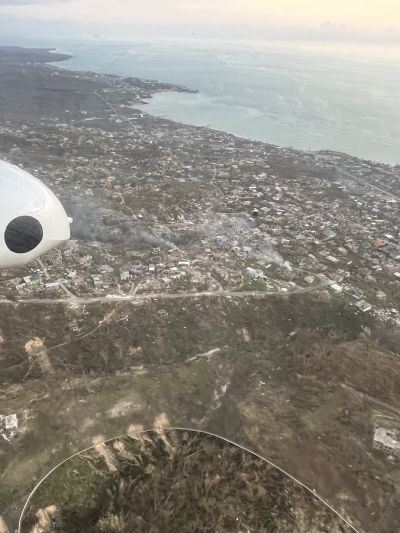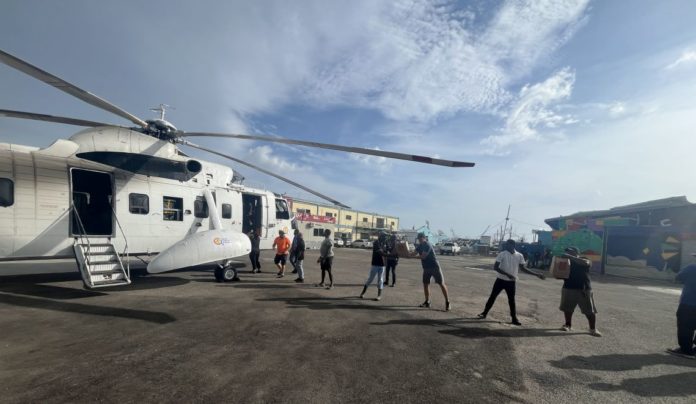As Hurricane Melissa swept through the Caribbean in late October, air charter specialist Chapman Freeborn transported personnel and critical equipment from the US directly to Jamaica hours after it made landfall.
The island bore the brunt of the destruction, with at least 32 fatalities reported and many more injured. Overall, some 600,000 people in Jamaica were affected, and relief operations are expected to last several months.
As Melissa was gaining strength, Chapman Freeborn was getting ready to deploy charters to the Caribbean. Pre-planning efforts included advance coordination with regional operators, liaising with Chapman Freeborn’s 24/7 Operations team in the UK for the latest Notices to Airmen (NOTAMs), storm trajectory updates and risk notices as well as deploying project management personnel to Miami for real-time charter coordination.
Vice president of government and humanitarian – Americas, Cam Bolton-Wilson, said: “Before Melissa’s landfall, we had received requests from multiple customers in the public, government, commercial, NGO and defense sectors. We informed our clients about everything from airport status updates and aircraft availability to permit processes and potential schedules so we could respond as quickly as possible to any situation on the ground.”

One of the organisations that reached out was World Central Kitchen, which provides meals to communities impacted by natural disasters. Chapman Freeborn transported the NGO’s response team from Miami to Kingston on an ERJ-145 regional jet. The company also mobilized an S-61 heavy-lift helicopter from Michigan to Grand Cayman, before positioning it to Jamaica to support World Central Kitchen operations at the heart of the affected area.
Chapman Freeborn also transported rapid-response equipment to Jamaica on an Gulfstream G-IV, and had Airbus A-320s, CASA C-212, Antonov AN-12 and a wide array of regionally positioned turboprop and rotary wing aircraft available to support the evolving mission. The Antonov AN-12 was used to transport communications equipment while critical infrastructure was under repair.
“The nature of disaster response operations is significantly different from traditional charters,” Bolton-Wilson explains. “There’s no time to lose, so we have to be prepared to go into unstable or developing environments to provide the necessary assistance. We strive to operate ethically and ensure the best solutions possible, balancing schedule, cost and operational need against rapidly evolving operating environments.”
Chapman Freeborn not only offers instant access to project-specific aircraft, but also provides dynamic trip support and mission management. What’s particularly important in rapidly-developing situations is managing stakeholder expectations and explaining realistic capabilities, Bolton-Wilson notes:
“Even in dire situations, the regulatory environment still applies to air travel, so evolving needs on the ground cannot always drive airlift solutions. Our brokerage team matches aircraft to mission specifics, and provides essential stability and project control during what can be a chaotic planning phase.”
While many aircraft sourced by Chapman Freeborn were ultimately not required due to rapidly shifting needs, the company provided critical initial deployment solutions and support for relief efforts in Jamaica through the contracted S-61 heavy lift helicopter. The aircraft arrived within hours of the hurricane making landfall, and delivered versatile, high-impact airlift capabilities to World Central Kitchen and the people of Jamaica.










